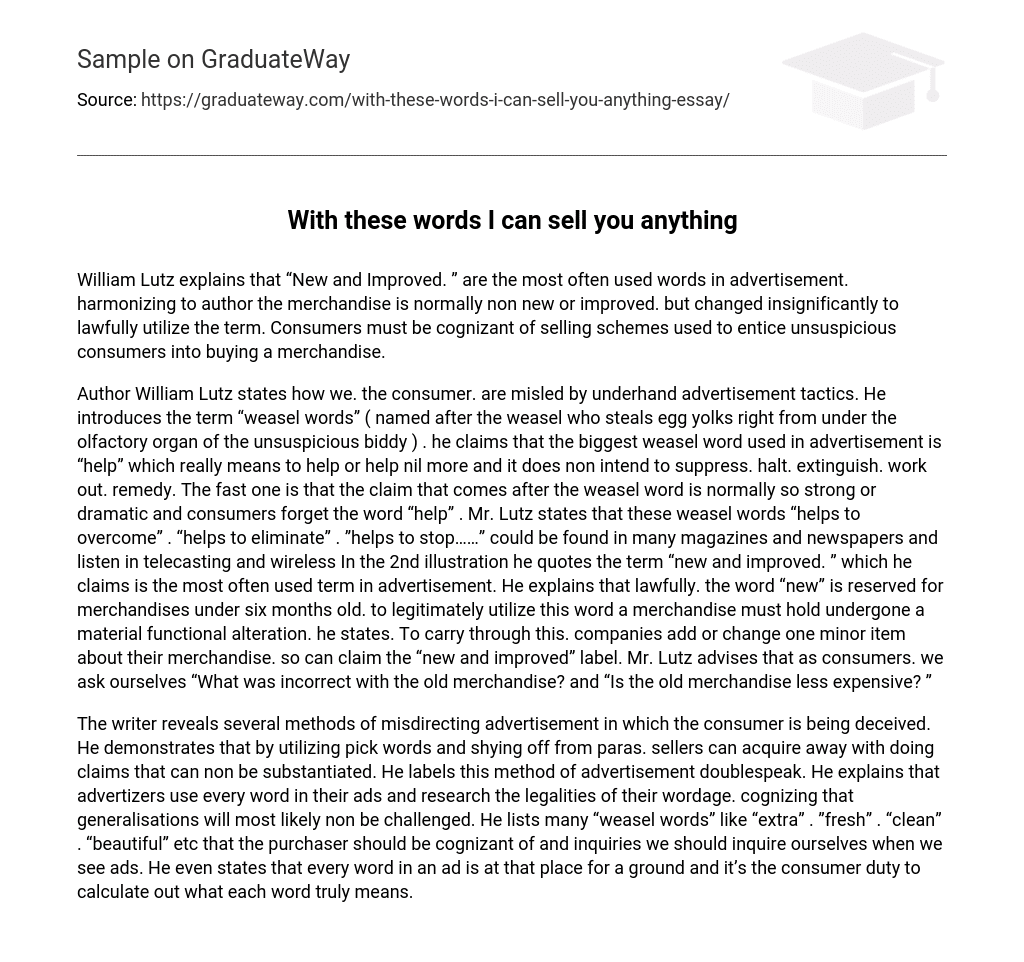William Lutz explains that “New and Improved. ” are the most often used words in advertisement. harmonizing to author the merchandise is normally non new or improved. but changed insignificantly to lawfully utilize the term. Consumers must be cognizant of selling schemes used to entice unsuspicious consumers into buying a merchandise.
Author William Lutz states how we. the consumer. are misled by underhand advertisement tactics. He introduces the term “weasel words” ( named after the weasel who steals egg yolks right from under the olfactory organ of the unsuspicious biddy ) . he claims that the biggest weasel word used in advertisement is “help” which really means to help or help nil more and it does non intend to suppress. halt. extinguish. work out. remedy. The fast one is that the claim that comes after the weasel word is normally so strong or dramatic and consumers forget the word “help” . Mr. Lutz states that these weasel words “helps to overcome” . “helps to eliminate” . ”helps to stop……” could be found in many magazines and newspapers and listen in telecasting and wireless In the 2nd illustration he quotes the term “new and improved. ” which he claims is the most often used term in advertisement. He explains that lawfully. the word “new” is reserved for merchandises under six months old. to legitimately utilize this word a merchandise must hold undergone a material functional alteration. he states. To carry through this. companies add or change one minor item about their merchandise. so can claim the “new and improved” label. Mr. Lutz advises that as consumers. we ask ourselves “What was incorrect with the old merchandise? and “Is the old merchandise less expensive? ”
The writer reveals several methods of misdirecting advertisement in which the consumer is being deceived. He demonstrates that by utilizing pick words and shying off from paras. sellers can acquire away with doing claims that can non be substantiated. He labels this method of advertisement doublespeak. He explains that advertizers use every word in their ads and research the legalities of their wordage. cognizing that generalisations will most likely non be challenged. He lists many “weasel words” like “extra” . ”fresh” . “clean” . “beautiful” etc that the purchaser should be cognizant of and inquiries we should inquire ourselves when we see ads. He even states that every word in an ad is at that place for a ground and it’s the consumer duty to calculate out what each word truly means.





